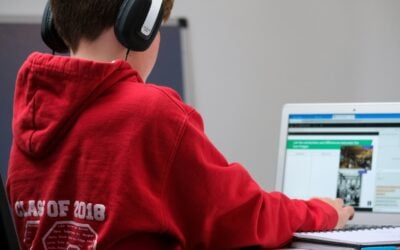What are soft skills?
Different skills are used and developed for different situations. The skills needed for math are different than the skills needed for reading; athletic skills are different still. But what about more subtle skills such as listening and time management? These intangible but essential skills are known as soft skills. Soft skills are a set of skills students need to be successful in the workplace and world at large.
Why are soft skills important?
These skills are especially valuable for students in high school and higher education. High school students benefit from a well-rounded, differentiated curriculum. Colleges and universities require students to have a grasp on many soft skills, and they are expected in the workplace. Beyond that, students with a firm understanding of soft skills have a greater ability to connect interpersonally.
Which skills need to be incorporated?
There are a lot of skills that fall under the soft skills umbrella, so which ones should be included in a curriculum?
Communication skills, especially active listening, should rank high on any list. These skills are used every day and allow for an open flow of ideas. Critical thinking and problem solving skills are also important. Once again, these skills are used daily and prepare students to succeed outside the world of academia. Even time management needs its place in a well-developed curriculum.
In-Depth Examples
Even with an extensive list of soft skills, it can be a challenge incorporating them into daily lesson plans. In many cases these skills are used in a lesson, but not intentionally taught or demonstrated. Here a few examples of soft skills incorporated into a curriculum.

Active Listening
The first skill to highlight is active listening. While listening is simply hearing what someone is saying, active listening is about responding to what is heard. Active listening involves understanding what is being said without interrupting or even asking questions.
Sample tasks:
- Socratic Seminar
- Discuss a topic, idea, or piece of literature
- Respond to and ask questions of classmates
- Can be whole-class or smaller group discussion
Critical Thinking
Next, let’s talk about critical thinking. It’s almost the opposite of active listening, so the two go hand-in-hand. After hearing information, one has to evaluate its relevance and validity. Is it true? Can it be trusted? Once these judgements are made, however, they have to be supported or argued. All of this together, is critical thinking.
Sample tasks:
- Argumentative essays
- Class-wide debate
- Students assigned a pro or con side of an issue or topic
- Support their side in the most effective way
- Formal classroom debate
These are just a few examples of soft skills and how each can be supported in a high school or higher education curriculum. The best thing about soft skills? Most can be added to an existing curriculum with just a few tweaks. For more ideas, check out this link for some sample lesson plans.





